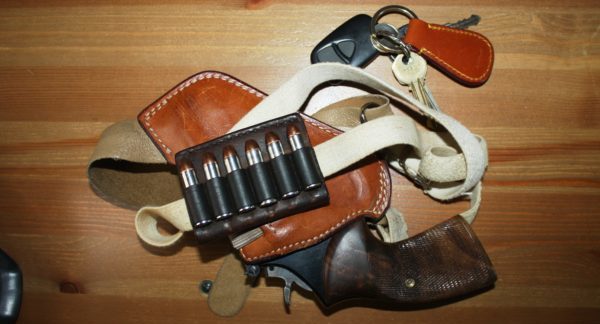
The Second Amendment Foundation has filed a federal lawsuit against Boston Police Commissioner Michael Cox, alleging “substantial and untenable delays in the police department’s processing of firearms license applications.”
It is a complaint that many gun owners have made in other jurisdictions over the years, alleging foot-dragging by gun permit issuing agencies which amounts to delaying the exercise of a constitutionally protected fundamental right to bear arms.
SAF is joined by the Firearms Policy Coalition, Commonwealth Second Amendment and four private citizens, Leslie Good, Kenley Exume, Robert Cox and Rudolph White. They are represented by attorneys David Jensen, Jensen & Associates in Beacon, N.Y., and Jason A. Guida at Principe & Strasnick in Saugus, Mass. The case was filed in U.S. District Court for the District of Massachusetts. It is known as White v. Cox.
The 13-page complaint details the problems plaintiffs allegedly have experienced in getting gun permits from the Boston Police. In the aftermath of New York State Rifle & Pistol Association v. Bruen last year, officials in some states have doubled down on their efforts to discourage citizens from applying for or obtaining carry permits.
The lawsuit alleges the Boston Police Department’s licensing unit makes gun license applicants “wait for many months before it provides them with appointments” to be fingerprinted in order to complete their applications. The average delay appears to be in excess of six months, which directly delays the commencement of the background check process.
According to the lawsuit, at the start of the COVID-19 pandemic in March 2020, the Licensing unit stopped processing or accepting applications for Firearm Identification (FID) cards or Licenses to Carry (LTC). When operations were finally resumed, there was a huge backlog of applicants who were placed on a waiting list, which quickly grew into the thousands. This process took months, and only then could they begin the licensing procedure, for which state law allows a maximum of 40 days.
For example, the lawsuit details the problem encountered by Good:
“Plaintiff Leslie Good submitted an application for a LTC to the Licensing Unit on February 6, 2023,” the document states, “using an online portal on the Police Department’s website. She submitted a completed application form, as well as documentation of the required training and copies of her identification. She paid the $100 application fee.
“Ms. Good contacted the Licensing Unit by email about two weeks later, on February 16, 2023,” the complaint continues. “An employee told her that it would take ‘a few months’ for an officer to contact her to set up an appointment to submit fingerprints because they were ‘very backed up.’
“On June 15, 2023, Ms. Good had not heard anything further, so she again contacted the Licensing Unit by email to ask about the status of her application,” according to the narrative. “She received no response. Ms. Good contacted the Licensing Unit twice more, on June 23, 2023 and July 10, 2023, but again received no response.
“Ms. Good has received no further communications from the Licensing Unit. Pertinently, the Licensing Unit still has not contacted her to schedule the taking of fingerprints or an interview. As of the date of this Complaint, it has been 206 days since Ms. Good submitted her application, but Defendant has not started the state background check process, which the state will then have 30 days to complete. Ms. Good has no idea when she will be able to obtain a LTC.”
“In 2021 we sued over the delay and the case was ultimately settled at mediation,” recalled SAF founder and Executive Vice President Alan Gottlieb. “The wait list was to be eliminated by Oct. 31, 2021. However, this year the Licensing Unit is back to its same old foot dragging, making people wait for months to begin the application process. As a result, we’re back in court to make the department comply with the law.”
“There is no plausible explanation for these delays,” said SAF Executive Director Adam Kraut. “We can only conclude the commissioner has adopted a policy or instituted a practice of delaying applications for many months, which amounts to deprivation of rights under color of law. We’re hoping the court provides a quick resolution to this practice and stops it cold.”